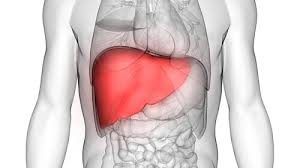Things to be aware of concerning liver health
Our body is a complex machine with countless organs working tirelessly. The liver is one of the most important but sometimes disregarded organs.
But just like any other hardworking organ, the liver needs care and attention. Unfortunately, the liver doesn't always show signs of trouble until it's quite stressed. Here is the importance of liver health, the potential threats it faces, and simple steps you can take to keep your liver functioning optimally.
Understanding the Liver's Functions
Detoxification: The liver acts as the body's natural filter, processing and removing toxins, harmful substances, and excess hormones from the bloodstream. These toxins can come from food, medication, alcohol, and even environmental pollutants.
Metabolism: The liver plays a central role in metabolism, breaking down carbohydrates, fats, and proteins into usable energy for the body. It also helps regulate blood sugar levels by storing and releasing glucose as needed.
Protein Synthesis: The liver is responsible for producing essential proteins, including albumin, which helps maintain fluid balance in the body, and clotting factors needed for blood clotting.
Bile Production: The liver produces bile, a digestive fluid that aids in the absorption of fats and fat-soluble vitamins from the intestines.
Nutrient Storage: The liver stores essential vitamins and minerals, including vitamins A, D, E, K, B12, and iron, ensuring a steady supply for the body's needs.
While the liver is a resilient organ, it can become compromised due to various factors. Here are some of the most common liver problems:
Fatty Liver Disease: This is the most common liver problem, with two main types: non-alcoholic fatty liver disease (NAFLD) and alcoholic fatty liver disease (AFLD). NAFLD is caused by a buildup of fat in the liver due to factors like obesity, insulin resistance, and unhealthy diet. As the name implies, excessive alcohol consumption is the cause of AFLD
Hepatitis: a virus-induced illness that can result in liver inflammation. There are five main types of hepatitis viruses, each with its transmission mode and severity.
Cirrhosis: This is a serious illness in which the liver's normal tissue is replaced by scar tissue, making it more difficult for the liver to function. Cirrhosis can develop from various causes, including long-term untreated fatty liver disease, hepatitis, and excessive alcohol consumption.
Liver Cancer: This is a less common but serious condition. Some factors, like cirrhosis, hepatitis B and C infection, and certain genetic conditions, can increase the risk.
Early Signs of Liver Trouble
Some potential signs of liver trouble to be aware of include:
Fatigue and tiredness: This is a common symptom that can be caused by various factors, but unexplained fatigue can sometimes indicate liver problems.
Abdominal pain or discomfort: Pain or a feeling of fullness in the upper right abdomen can be a sign of an inflamed liver.
Loss of appetite or nausea: Changes in appetite and nausea can occur due to liver issues. Jaundice: The accumulation of bilirubin, a waste product that the liver processes, results in a yellowing of the skin and the whites of the eyes.
Dark urine and pale stool: Changes in urine and stool color can sometimes indicate liver problems.
Swollen abdomen or ankles: Fluid buildup in the abdomen and ankles can be a sign of advanced liver disease.
The Power of Prevention
There are many things you can do to keep your liver healthy and prevent future problems. Here are some key strategies:
Maintain a healthy weight: Obesity and excess body fat are major risk factors for fatty liver disease. For the liver to remain healthy, a balanced diet and frequent exercise are essential to maintaining a healthy weight.
Eat a balanced diet: Choose a diet rich in fruits, vegetables, whole grains, and lean protein. Limit processed foods, saturated and trans fats, and added sugars.
Ayurvedic Knowledge for Liver Diseases
Ayurveda promotes a holistic strategy, emphasizing the avoidance of imbalances that may result in liver issues. The secret is knowing your dosha, or body constitution, and implementing harmonious activities. This may entail making dietary changes; consider light, quickly digested meals that are high in bitter greens and detoxifying spices like cumin and turmeric. Reducing sugar-filled beverages, alcohol, and harmful fats is also essential.
Ayurveda also suggests using herbal therapies such as the powerful yet mild cleanser Triphala and the liver-protecting and immune-boosting herb Giloy. Regular activities like yoga poses and
pranayama (breathing techniques) might enhance liver function by lowering stress and increasing circulation.
Ayurveda dedicates us to a healthy lifestyle by using these procedures and seeking individualized advice from an Ayurvedic professional, you can encourage your liver to maintain its health on its own.
Prevention is Key
Fair Pharma's Ayurvedic medicines can support your liver health journey and help you recover by ayurvedic medicine for fatty liver.
Maintain a healthy weight, limit alcohol intake, and choose a balanced diet rich in fruits, vegetables, and whole grains. Frequent exercise is also very important.
By combining traditional Ayurvedic wisdom with Fair Pharma's expertise and Ayurvedic medicines in Kerala, you can empower your liver to function optimally. Recall that the basis of your overall health is on a healthy liver. Take charge of your well-being today – Fair Pharma is here to support you every step of the way.

